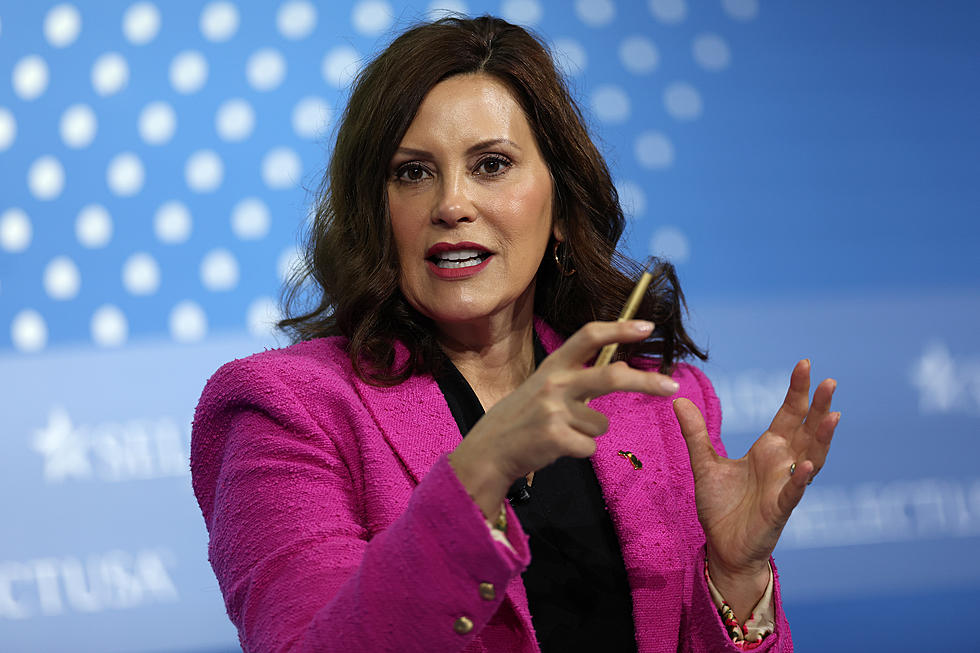
State Senator Dr. John Bizon: “Governor’s Nursing Home Policy a Tragedy”
Nearly 2,000 nursing home residents in Michigan have died of COVID-19, and that's about a third of confirmed virus deaths in the state. Knowing that nursing home residents were among the most vulnerable to the disease, Governor Whitmer's executive order in April said nursing homes with a census of below 80% had to create a unit dedicated to the care of COVID-19-affected residents, and that facilities "must accept the return" of a resident who had been hospitalized if it could meet the medical needs of the resident.
A lot of people are now questioning that order, including the Detroit News, members of the US Congress, and many in the Michigan Legislature.
U.S. Congressman Steve Scalise wants to hear from Whitmer, and other governors on the issue, but Whitmer is telling Congress to mind their own business.
"I hope that as members of a federal body tasked with oversight of the federal executive branch during this unprecedented public health crisis you refrain from encroaching on the sovereign power of a state government to deal with state matters," Whitmer wrote in a letter dated June 19th.
State Senator Dr. John Bizon says the State Legislature may have to vote to subpoena the Governor to get answers to questions. Senator Bizon also has written the following editorial about the issue. In it, Sen. Bizon also talks about legislation that would protect nursing home patients and workers in the future.
By Sen. John Bizon, M.D., 19th Senate District
Residents across the nation and our state are suffering as we continue to battle the deadliest global pandemic in more than a hundred years.
When COVID-19 first began to appear in the United States, one of the few things we knew about the disease among the many unknowns was that it was much more dangerous for the elderly than for any other population group.
That is one reason that on March 13, 2020, the national Centers for Medicare & Medicaid Services (CMS) issued the document “Guidance for Infection Control and Prevention of Coronavirus Disease 2019 (COVID-19) in Nursing Homes.”
The document provided a plan for states to follow when trying to control outbreaks of coronavirus in nursing homes and long-term care facilities.
CMS understands that nursing homes are not hospitals, and they are not designed to provide the type of care necessary for COVID-19 patients. And with a vulnerable population, nursing homes certainly are not an appropriate place to house patients with the disease.
Just over a month later, on April 15, Gov. Gretchen Whitmer issued Executive Order 2020-50, requiring certain nursing homes to care for COVID-19-affected residents — despite the risk to other nursing home residents.
This shocking order by the governor directly contradicted our knowledge of the disease, clear medical evidence and the guidance of our health experts.
And her decision has had tragic consequences.
After her executive order in mid-April, several requests were made to the Michigan Department of Health and Human Services and the Whitmer administration to release important nursing facility data — including data regarding deaths — related to how COVID-19 was affecting these facilities.
It wasn’t until June 15 that the state finally released the data and we learned what a disaster the Whitmer policy had been. According to the data, more than 1,900 deaths from COVID-19 had occurred to that point in nursing homes.
This is more than a third of all Michigan deaths from the disease, but even this number may very well be underreported, since it does not include other long-term care facilities, such as homes for the aged, facilities that house seniors and the disabled, and other assisted living centers.
If the governor had chosen to release this data earlier, when asked, a much better response to the crisis could have been crafted and hundreds of deaths could have been prevented.
Recently my colleague Sen. Peter J. Lucido introduced a bill to prohibit the transfer of people who have COVID-19 into the state’s long-term care facilities.
The bill also would require the establishment of a dedicated facility in each health care region of the state to help take care of individuals while they recuperate before returning to a nursing home upon testing negative
As a practicing physician for more than 40 years and as the current chair of the Senate Families, Seniors, and Veterans Committee, I wholeheartedly support Senate Bill 956, which will enable infected patients to be isolated from the at-risk elderly populations and minimize exposure to staff at facilities with elderly populations.
Sen. Lucido’s legislation will fix many of the problems with the governor’s policy and protect vulnerable seniors and staff. It will allow care workers to focus on the containment of the coronavirus and safety of their workers.
We cannot undo the damage that has already been done. But we should do all we can to help prevent further needless deaths.
State Sen. John Bizon, M.D., R-Battle Creek, represents Michigan’s 19th District, which includes Barry, Calhoun and Ionia counties.

KEEP READING: See 25 natural ways to boost your immune system
More From WBCKFM









